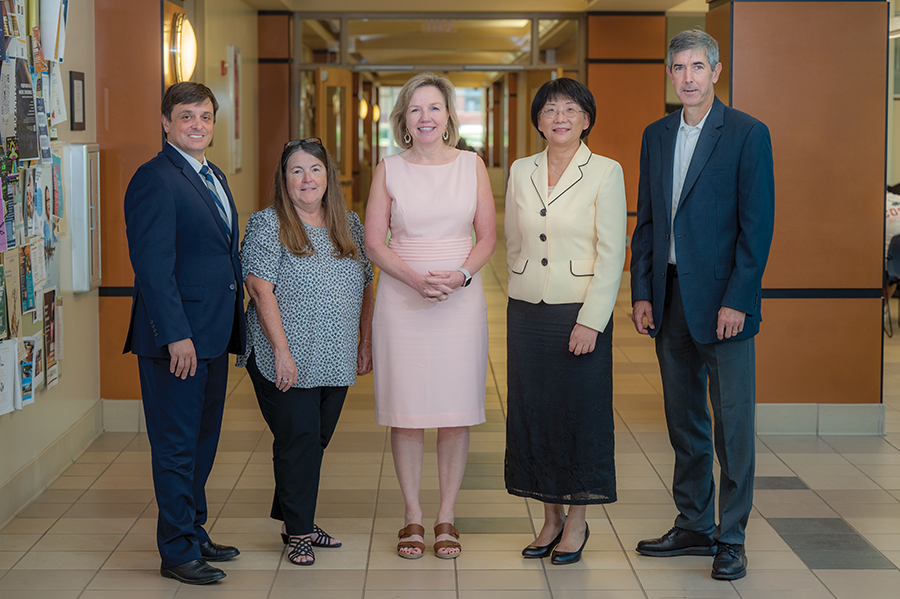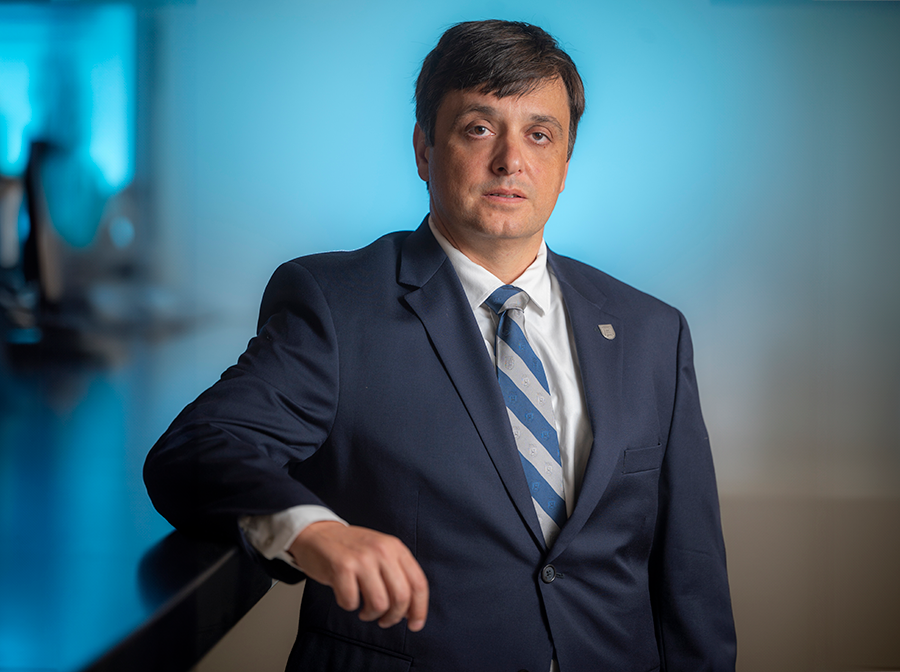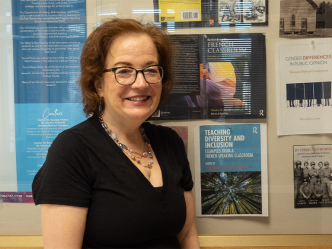Augusta University School of Public Health Dean Teresa Waters, PhD, has announced Gianluca De Leo, PhD, has accepted the role of inaugural chair of the Department of Health Management, Economics and Policy. He has been serving as interim chair since August 2023.
“This is an exciting time for Augusta University and our School of Public Health. I am honored to be part of the inaugural faculty and staff. We will strive to improve public health throughout our community and beyond while increasing research and offering high-quality education,” De Leo said.
De Leo previously served as chair of the Department of Clinical and Digital Health Sciences, as well as professor for AU’s Department of Interdisciplinary Health Sciences in the university’s College of Allied Health Sciences.
“I am so grateful to Dr. De Leo for his excellent service in the interim chair role, and I look forward to working with him in the years to come as he strategically leads and grows the department,” Waters said.
The Department of Health Management, Economics and Policy brought together faculty from CAHS’s Department of Interdisciplinary Health Sciences, the Medical College of Georgia‘s Department of Population Health Sciences and the Institute for Public and Preventive Health and will work to improve health and well-being of individuals and communities in Georgia and beyond through innovations in health services delivery and health policy.
“Public Health brings together a whole range of scientific tools, including those from social, mathematical and psychological sciences, and faces those tools at health.”
Teresa Waters, PhD, dean of the School of Public Health
De Leo has designed and led the development of several e-health systems such as an automated telephone call center for the education and monitoring of patients with diabetes, a game-based virtual environment for helping children with cerebral palsy to walk on a treadmill and a smartphone for increasing the communication skills for children with severe autism.
De Leo has been involved in several projects related to e-health, health informatics, biomedical informatics and virtual reality, which were funded by the Italian Ministry of Health, the European Commission, Microsoft Research, the Virginia Center on Aging and several SBIR/STTR programs.
More recently, the Robert Wood Johnson Foundation, the United States Department of Defense and the National Institute of Health have supported De Leo’s research in innovation in public health informatics, communication disabilities and telemedicine.
De Leo earned a PhD in Bioengineering and Bioelectronics from the University of Genova, Italy (2003). He also earned an MBA from Saint Louis University (2005).

In May, the School of Public Health celebrated a major milestone in their journey to full accreditation. The Council on Education for Public Health (CEPH) notified the university that they have formally accepted AU’s Initial Application Submission to transition from an accredited Master of Public Health program to a School of Public Health. This acceptance officially launches the school’s accreditation review and self-study, which should culminate in full accreditation in 2027.
SPH faculty, staff and students, as well as other university officials gathered at the conclusion of the academic year to celebrate the occasion with an ice cream social at the amphitheater on the Summerville Campus. SPH is housed in Science Hall on that campus.
“Public Health brings together a whole range of scientific tools, including those from social, mathematical and psychological sciences, and faces those tools at health. This makes us natural partners with so many, not only with clinicians on the Health Sciences Campus, but also all the disciplines represented on the Summerville Campus, as well. In fact, I don’t think there is a college or school at our university that we don’t have someone we are working with. It’s in our DNA to collaborate all the way around,” Waters said.
AU’s School of Public Health is home to seven programs: the Master of Public Health and Master of Science degrees in biostatistics, clinical translational science, data science and epidemiology, and the Doctor of Philosophy degrees in biostatistics and applied health sciences.
AU’s School of Public Health is in the midst of a 24-month self-study period, with the final report due no later than March 1, 2026. Following the self-study period, there will be an official accreditation site visit in fall 2026 before a final decision on accreditation will be given.
 Augusta University
Augusta University




